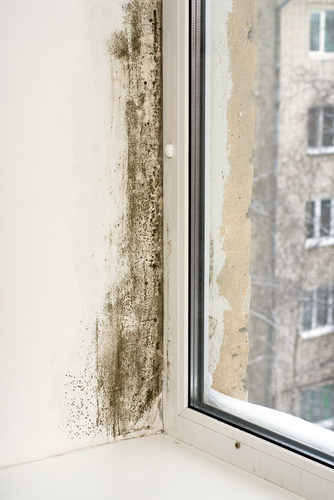Mold in the Home: How to Identify and Treat It
If you’re planning on selling your home, you’ll want to know in advance about anything that may be structurally wrong with the house before a pre-sale inspection. No one wants to be caught off-guard with an expensive issue that will either kill a pending sale, or cause the sale price to plummet downward. Likewise, if you’re buying a home, you want to know how certain known defects in the home could affect the home’s value, and whether or not it would be worthwhile going forward with a sale despite the issue. One defect you should keep in mind when evaluating a home is mold.
Where does mold grow?
Even one spore of mold can multiply and form a colony, provided there is sufficient moisture and organic material. Since mold is in the air all around us, mold can grow anywhere that’s moist, especially around leaks in pipes, roofs, and windows. Mold tends to form in certain predictable locations, including around bathtubs, sinks, and toilets, due to the high moisture in the air in a bathroom. Homes with attics also can grow mold; while inspecting the attic, check to see if mold has formed around any leaky spots in the roof. Mold can also form in air ducts and in cavities within the wall. Mold also forms in certain unlikely places, such as under wallpaper, on the non-visible part of ceiling tiles, on drywall, under carpets, and behind furniture. Check around windows and doorways, where water may have seeped in and resulted in mold growth.
What harm can mold cause?
Most significantly, mold can cause physical harm to those living in the home who are constantly exposed to it. Mold exposure can cause asthma attacks and other respiratory problems, skin rashes, coughs, and eye irritation. More severe reactions include headaches, mood swings, nosebleeds, and even memory loss and trouble concentrating. Mold can also cause a serious condition known as “dry rot,” which results in the shrinking and rotting of wood structures in the home.
How can mold be removed?
Mold can be cleaned using bleach or other strong cleaning agents, but if you’re doing it yourself, be sure to use a respirator. While you may not have noticed the effects of the mold in your home before, agitating the dried-up mold can often cause serious reactions due to the concentrated exposure. Due to the potential for causing harm to yourself or your family, hiring a licensed contractor who specializes in mold removal is recommended.
For assistance with your Annapolis-area home sale or purchase agreement, contact a real estate attorney at the Evans Law for a consultation on your real estate issue, at 410-626-6009.





